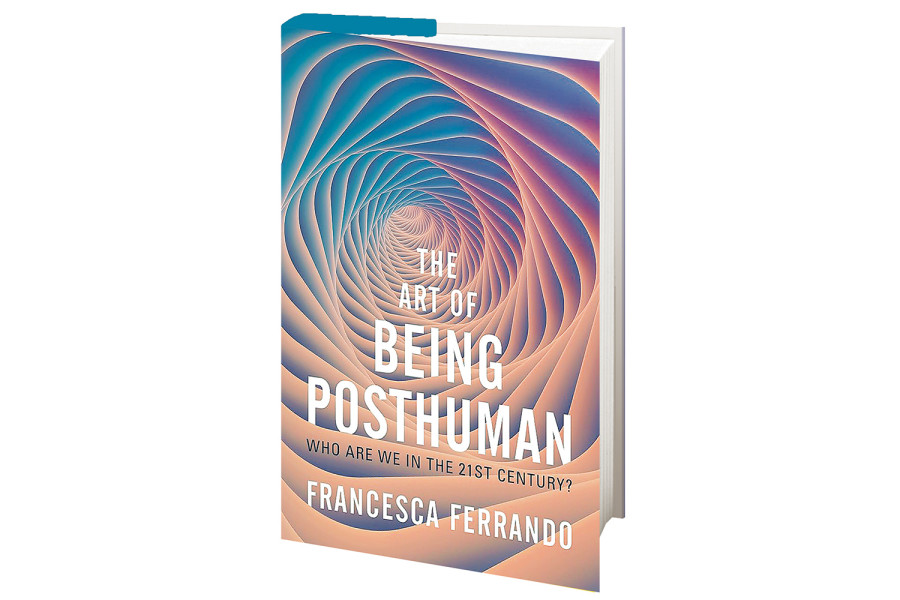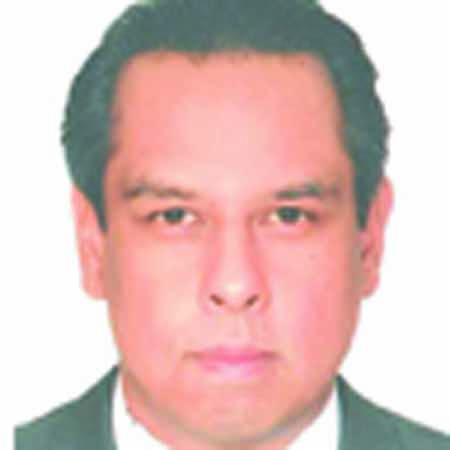Books
Identity, technology and ethics in modern era
In ‘The Art of Being Posthuman’, Francesca Ferrando argues that in the 21st century, understanding our identity means recognising our deep connection with technology, nature, and other species.
Bimal Pratap Shah
New York University Professor Francesca Ferrando’s latest book, ‘The Art of Being Posthuman’, explores the complex dynamics between identity, technology, and ethics in contemporary society.
Released in 2023, this work offers an in-depth analysis of the profound transformations shaping our understanding of self and our role in a rapidly evolving world dominated by technological progress and ubiquitous data.
In today’s world, where problems like extreme nationalism and strict populist leaders are growing, leading to harsh restrictions on media freedom, her views are more important than ever.
Navigating the intricate intersections of philosophy, science, and culture, her insights illuminate the present moment and offer guidance for navigating future uncertainties.
The Posthuman Context
Ferrando explores the idea of the posthuman, which questions and goes beyond traditional humanist beliefs. In the introduction, she explains posthumanism as a comprehensive way to understand existence beyond the human-centred perspective that has traditionally shaped philosophy.
The writer argues that in the 21st century, understanding our identity means recognising our deep connection with technology, nature, and other species. This view effectively breaks down the strict divisions traditionally defining human life, like human versus machine and natural versus artificial.
Ferrando argues that today's world, influenced by the Anthropocene epoch, global health crises, and the rise of artificial intelligence, requires a new way of understanding identity and existence. The Anthropocene epoch, a proposed geological period marked by significant human impact on Earth's climate, ecosystems, and geology through changes like climate change, biodiversity loss, pollution, and land use alterations, is especially important to her.
Her work goes beyond academic study, strongly calling us to adopt a more interconnected and comprehensive view of our place in the world.
Human Rights and Ethical Considerations
Ferrando also critiques traditional human rights frameworks, pointing out their Western-centric origins and their failure to address the complex realities of a posthuman era. She calls for a shift towards a more inclusive idea of rights that includes not just humans but also technological entities and the environment. This broader perspective is essential for dealing with the ethical challenges of our time, especially regarding digital freedom and privacy.
She emphasises the interconnectedness of all beings and systems, advocating for a worldview that recognises the rights and autonomy of non-human entities. This new rights framework is crucial in the context of media freedom, where information manipulation and digital platform regulation have significant impacts.
Existential Dignity and Agency
At the heart of Ferrando’s argument is the concept of ‘existential dignity’, which she defines as the intrinsic value that all beings possess due to their ability to exist and interact meaningfully with their environment. This idea is particularly important in the context of media suppression and the widespread use of surveillance technologies.
Ferrando argues that dignity is threatened when individuals' data is manipulated in ways that go against their fundamental beliefs and agency. She believes that turning human experiences into commodities, as seen in surveillance capitalism, undermines the basic dignity of both individuals and communities.
She broadens her exploration of existential dignity to include technological entities and artificial intelligence. Ferrando examines the ethical challenges of integrating AI and robotics into society while preserving the dignity of both humans and non-human entities. This issue is crucial as AI and machine learning advance quickly, often faster than the development of ethical guidelines and regulations.
Technological Enhancement and Ethical Futures
In her exploration of technological advancement, Ferrando examines the complex areas of biohacking, genetic engineering, and AI. She discusses both the potential benefits, such as enhanced abilities and longer lifespans and the ethical and existential risks associated with these innovations.
Ferrando's critique becomes particularly relevant where technological advancements can be used to consolidate authority. The use of AI for surveillance and manipulation has the potential to amplify existing power imbalances, threatening democratic principles. In response, she calls for an ethical framework based on transparency, accountability, and the protection of individual rights in the face of rapid technological progress.
Posthumanism as Social Wisdom
Throughout her book, Ferrando emphasises the need to translate academic philosophy into practical social wisdom. She contends that posthumanism provides a route to a more inclusive and ethical future, one that acknowledges and respects the interconnectedness of all beings. This transformation is essential for tackling the existential challenges of our era, ranging from ecological crises to the erosion of privacy and media freedom.
‘The Art of Being Posthuman’ delves into the depths of identity, technology, and ethics in our modern era, offering profound insights against the backdrop of escalating media censorship and omnipresent surveillance. Her revelations illuminate the intricate relationship between humanity and technology.
Her impassioned plea for a complete overhaul of human rights and ethical data practices resonates with urgency. She emphasises the critical role of media freedom in fostering a more inclusive and equitable society.
A free press acts as a watchdog that holds leaders accountable for corruption and abuses. By providing diverse perspectives, a free press empowers citizens to challenge the regime's narrative, disrupting the dictator's ability to control information flow and shape public opinion. Consequently, dictators resort to censorship, intimidation, and violence to suppress dissent and maintain control.
From the vantage point of posthumanism, media freedom is crucial for navigating our interconnected world, transcending traditional human-centric perspectives and acknowledging the interconnectedness of all beings, including technological entities and the environment.
It amplifies diverse voices, challenges power structures, and fosters collaboration across human and non-human realms. Ferrando's call for a holistic and inclusive approach to posthumanism envisions a future where dignity, agency, and interconnectedness shape ethical considerations, making ‘The Art of Being Posthuman’ essential reading for anyone grappling with human identity and freedom in the digital age.
The Art of Being Posthuman
Author: Francesca Ferrando
Year: 2023
Publisher: Polity




 9.89°C Kathmandu
9.89°C Kathmandu










